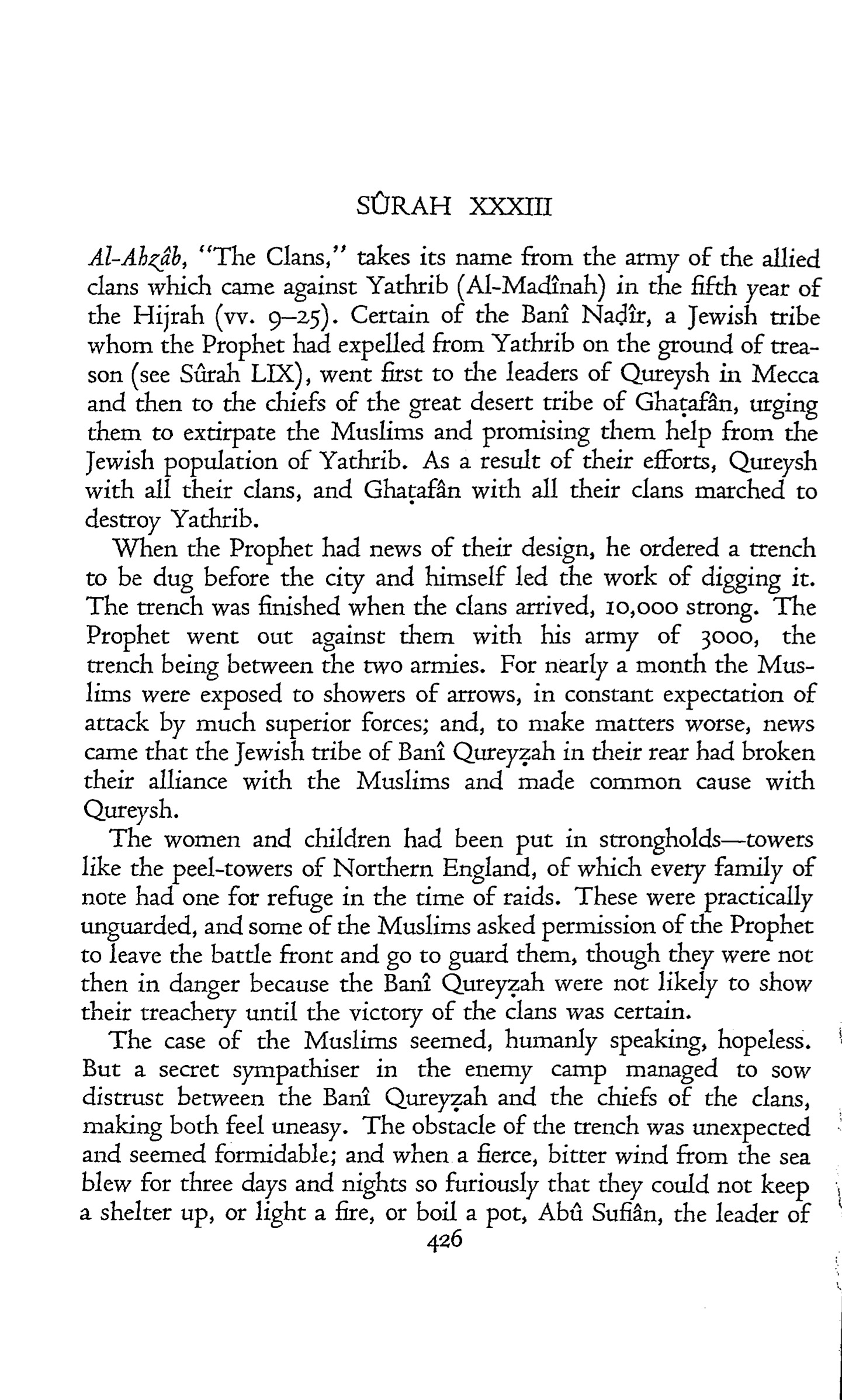Marmaduke Pickthall, The Meaning of The Glorious Koran. An Explanatory Translation (1930)
SÛRAH XXXIII
Al-Ahzâb “The Clans,” takes its name from the army of the allied clans which came against Yathrib (Al-Madînah) in the fifth year of the Hijrah (vv. 9–25). Certain of the Banî Naḍîr, a Jewish tribe whom the Prophet had expelled from Yathrib on the ground of treason (see Sûrah LIX), went first to the leaders of Qureysh in Mecca and then to the chiefs of the great desert tribe of Ghaṭafân, urging them to extirpate the Muslims and promising them help from the Jewish population of Yathrib. As a result of their efforts, Qureysh with all their clans, and Ghaṭafân with all their clans marched to destroy Yathrib.
When the Prophet had news of their design, he ordered a trench to be dug before the city and himself led the work of digging it. The trench was finished when the clans arrived, 10,000 strong. The Prophet went out against them with his army of 3000, the trench being between the two armies. For nearly a month the Muslims were exposed to showers of arrows, in constant expectation of attack by much superior forces; and, to make matters worse, news came that the Jewish tribe of Banî Qureyẓah in their rear had broken their alliance with the Muslims and made common cause with Qureysh.
The women and children had been put in strongholds — towers like the peel-towers of Northern England, of which every family of note had one for refuge in the time of raids. These were practically unguarded, and some of the Muslims asked permission of the Prophet to leave the battle front and go to guard them, though they were not then in danger because the Banî Qureyẓah were not likely to show their treachery until the victory of the clans was certain.
The case of the Muslims seemed, humanly speaking, hopeless. But a secret sympathiser in the enemy camp managed to sow distrust between the Banî Qureyẓah and the chiefs of the clans, making both feel uneasy. The obstacle of the trench was unexpected and seemed formidable; and when a fierce, bitter wind from the sea blew for three days and nights so furiously that they could not keep a shelter up, or light a fire, or boil a pot, Abû Sufiân, the leader of
